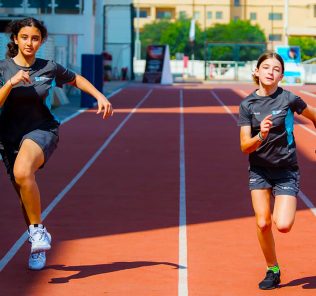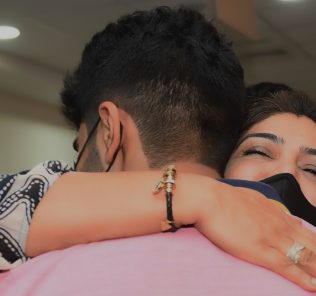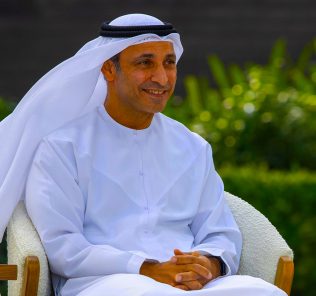The big story this year was whether the IB would seek to return grading to pre-Covid 19 thresholds. If it had, the impacts on schools and students would have been severe. We discussed the issues around grade inflation – and how to manage it, here.
At some point, according, at least, to the prevailing wisdom, grades need to go back to “normal.” We cannot have a system when every child does well. If we did, how on earth would universities be able to decide who to give places to? How would employers know who were “really” the “best” students?
The point at which the IB does remove all semblances of grade inflation will see a number of knock-on impacts that need to be managed:
- Many schools will come under fire because suddenly their grades will drop. Detractors will argue that assessed grades were bumped up without any sound basis
- Students will find themselves competing for places at university, and for roles in industry, with lesser grades than equivalently able students from the Covid years
The first will need restraint by schools to not use data against other schools. It will need responsible journalism, including by ourselves, to not highlight discrepancies. The reason is simple. Good schools, schools that fought for their students to be awarded the highest possible grades, at a time in which they were disadvantaged and no one could possibly know how well they would perform in a normal year, not only did the right thing – but surely deserve enormous praise for fighting so hard for their students. It can be argued that those schools that did not secure high grades for their students did not fight hard enough for their students and put statistics before the children whose lives rested on their decisions.
The second is far more complicated. It will need a monumental exercise in joined up thinking between universities, schools, governments and exams bodies to make sense of a landscape that is inherently jumbled.
With results in, it looks like the IB has kept its promise to not remove grade inflation overnight. For that we should all be grateful.
The 2022 global average score of 31.98 is a reduction of just one point compared with last year’s figure of 32.98. The global pass rate this year 85.6% compared with 88.95% last year. The UAE average is 34.03 for 2022, compared with 35.89 in 2021.
If the IB had wanted to stamp out grade inflation overnight we would have seen a global pass rate dropping into the late 70s percentage and global average points at point differences in the 29 mark.
This said, it is arguable that this year’s students have not been treated fairly. There should, arguably, have been no diminution of grade boundaries or pass rates at all.
The 2022 cohort saw the first year of their studies significantly impacted by distance learning, with further impacts on CP students who saw critical industry links disappear overnight, and broader impacts on the whole Service element of the IB which fundamentally depends on broad community engagement. It is almost impossible to calculate or be certain of the mental health impacts faced by children – now and ongoing. Globally, not all students even sat for examinations.
Some will say that the IB took a moderate, gradual, thoughtful approach to adjusting boundaries. We do not agree. We think they caved in and have hurt students. It could have been worse, but that is not the point.
The bottom line, then, is that every single IB school, teacher and leader across the sector, parents – and above all students, deserve huge credit for their success this year – success which has been achieved against a backdrop of chaos, challenge and odds heavily stacked against them.
Interestingly, Covid-19 has empowered those who believe that the entire system we use to judged children, across all curricular – not just the IB, is fundamentally flawed, archaic in focus and needs root and branch transformation and kicking into the twenty-first century. Even the Director General of the International Baccalaureate, Olli-Pekka Heinonen, calls into question both how we teach children – and what we teach children. Outside the how and what, if you think about it, there is not a lot left to review. You can read his full call to arms here.
In British education, the situation is similar with bitter divisions on the need for GCSE qualifications at all – and the move to strengthen new T level qualifications.
We should not be surprised – the impact of Covid stretches far beyond education to society as a whole, with employers globally now looking at four day weeks, a transformational change to work being pioneered in the UAE. Work from home has now become institutionalised in the UK with a new standard of two days only in the office. Universal minimum income trials are popping up worldwide and being discussed seriously rather than ridiculed. Cures for viruses, always dismissed as impossible, are now seen as something that can be conjured in months with enough investment. Digital communication dominates industry just as digital technology in the classroom has become integrated in ways unimaginable before Covid.
This is a time of many, significant and far reaching changes – and education is at the heart of all of them. As above, it is also a time in which responsibility weighs heavy in the changes we all make, and our reporting and communication of them. This is a time in which great sensitivity to detail is needed and not sensationalism. Watch out for those seeking to use grade inflation as a stick to beat schools. It may not look like it, but these are the self same people who will put the interests of your children at the bottom of the list.
International Baccalaureate Diploma Results 2022 – live updating…
Data supplied by ![]() and SchoolsCompared.com.
and SchoolsCompared.com.
| School | IB DP Average | % Pass Rate | # of Students sitting the IB DP | % above 30 | % above 35 | % above 40 |
| Al Bateen Academy | 32.3 | 92 | 43 | n/p | n/p | n/p |
| American International School Abu Dhabi | n/p | n/p | n/p | n/p | n/p | n/p |
| British International School Abu Dhabi | 33.71 | 85 | 61 | 78.8 | 46.1 | 13.4 |
| Collegiate International School | n/p | n/p | n/p | n/p | n/p | n/p |
| Dar Al Marefa School | 30.6 | 100 | n/p | 56 | n/p | n/p |
| Deira International School | 35.4 | 100 | 78 | 88.4 | 59 | 21,8 |
| Dubai International Academy Al Barsha | 33.2 | 92 | 26 | 69 | 38 | 3 |
| Dubai International Academy Emirates Hills | 37.1 | 100 | 139 | 96 | 71 | 33.1 |
| Emirates International School Jumeirah | n/p | n/p | n/p | n/p | n/p | n/p |
| Emirates International School Meadows | n/p | n/p | n/p | n/p | n/p | n/p |
| GEMS Dubai American Academy | 35.4 | 97 | 154 | 84 | 57 | 21 |
| GEMS International School Al Khail | 33.6 | 94 | 32 | 73 | 47 | 13 |
| GEMS Modern Academy | 36.1 | 99 | 77 | 95 | 66 | 25 |
| GEMS Wellington Academy DSO | 34.3 | 100 | 50 | 80 | 50 | 24 |
| GEMS Wellington International School | 35.9 | 95 | 111 | 91 | 61 | 24 |
| GEMS World Academy | 34.2 | 100 | 66 | 83 | 48 | 14 |
| Greenfield International School | 35.7 | 98 | 44 | 93.02 | 56 | 22.7 |
| Jumeira Baccalaureate School | 33 | 100 | 19 | 79 | 37 | 5 |
| Jumeirah English Speaking School | 38 | 100 | 88 | 99 | 75 | 38 |
| Nord Anglia International School | 37.5 | 100 | 43 | 93 | 75 | 40 |
| North London Collegiate School | 38.1 | 100 | n/p | n/p | n/p | 40 |
| Raffles World Academy | 32 | 73.9 | 69 | 72.22 | 31.48 | 9.26 |
| Raha International School | 33.8 | 92 | 127 | n/p | 81 | n/p |
| RAK Academy | 32 | 92 | n/p | 42 | n/p | 17 |
| Repton School Dubai | 36 | 100 | 44 | 93 | 61 | 18 |
| Sunmarke School | 35.8 | 100 | n/p | n/p | n/p | 25 |
| Swiss International Scientific School | n/p | n/p | n/p | n/p | n/p | n/p |
| Universal American School | 35 | 97 | 33 | 43 | 23 | 2 |
| Uptown International School | 34.4 | n/p | 41 | 80 | 52.5 | 25 |
n/p – not provided by the school
[Thank you to Lyn Soppelsa for her significant work and expertise in compiling this table.]
#EndOnAHighDubai
© SchoolsCompared.com. 2022. All rights reserved.




































































Leave a Response